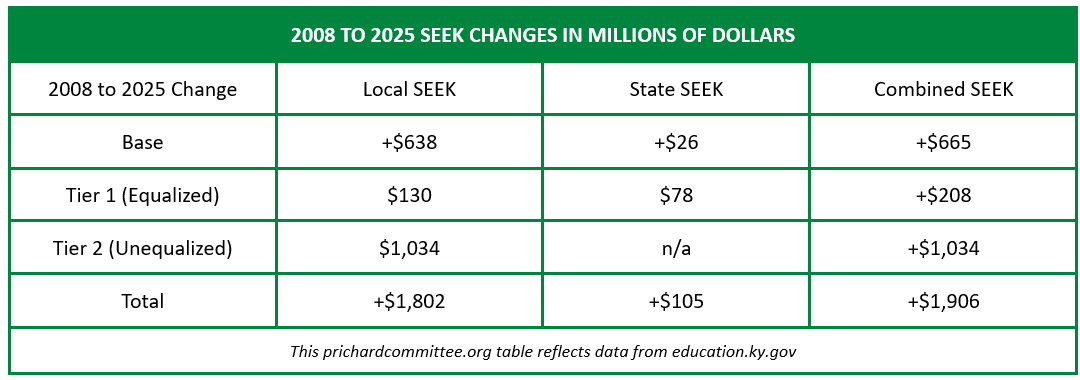State law on charter schools has two kinds of requirements for student results:First, Kentucky’s school accountability system will apply. That system includes student assessments, other kinds of data, school ratings, and support and improvement actions when schools have especially weak results. It’s clear that charter schools will be part of that system, both because Kentucky charter laws say so and because it’s a core federal requirement set in ESSA (the Every Student Succeeds Act passed in 2015).Second, a performance framework will be required. Each charter school will operate under a contract with its authorizer, and Kentucky law requires the performance framework to be in the contract. That framework will include student academic proficiency and growth, achievement gaps, and college or career readiness at the end of grade 12, and it will also include data on school operations and on student attendance, suspensions, withdrawals, exits, and continuing enrollment from year to year. Those “performance indicators, measures, and metrics” will be used by the authorizer to evaluate the charter school.Neither element will implement itself, so here come two concerns about the work ahead.
Accountability Roles to Build Up
Kentucky’s current rules for support and improvement at schools with low results were designed for multi-layered governance that includes a principal, a school council, a superintendent, and a school board. Accordingly, there are key steps where the principal needs the superintendent’s sign-off or plans designed at the school level needs approval at the board level. Similarly, if a school has ongoing weaknesses, it is supposed to receive additional support from its district.Charter schools will not have those layers and roles. They may only have the required charter board and one instructional leader. If that leader gets to act as principal and superintendent, that collapses a layer of checks and balances. If the charter board is both author and approver of the school improvement plan, that would also drop a layer of oversight out of the system.Bluntly, if Kentucky is going to stand up solo schools, separated from a network of leadership roles, we need to stand up a plan for who’s going to bring help and fresh thinking if the school needs support.
Frameworks and Firmness
The framework approach will require authorizer focus and follow-through. Before signing the contract, the authorizer should be the body checking that each performance entry is specific, measurable, achievable, relevant, and time-bound. Once the contract is in place, the authorizer needs to implement a regular process of reviewing evidence on those performance issues. There will also be puzzles on what to do if the school’s actual performance is a little or a long way below the framework’s expectations.The charter concept is supposed to be a trade where the charter accepts accountability in exchange for autonomy. For that to be an honest trade, the accountability part has to work. If accountability data shows a charter school to be deeply troubled, that warrants a step-by-step plan as strong as we have for other schools, with roles as clear and settled as the ones we apply to other institutions. Similarly, for a performance framework to have any impact at all, it has to be clear at the outset and checked consistently throughout the contract.
Legal Sources: KRS 160.1596 requires the targets and the framework. KRS 160.1593 requires the assessment plan.
Series Links:
Charter schools: taking on the questions (Introduction)
2. What student results are charter schools expected to deliver?
3. Which school laws do charter schools have to follow?
4. How can students be admitted to charter schools?
5. Who can authorize charter schools?
6. Who can apply to start a charter school?
7. How can charter schools be closed if they do not deliver?
8. What funding can charter schools receive?
Adding new questions about charter schools (Conclusion)












